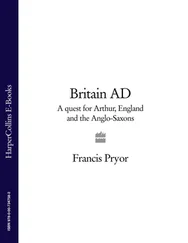Неизвестный автор - The Anglo-Saxon Chronicle
Здесь есть возможность читать онлайн «Неизвестный автор - The Anglo-Saxon Chronicle» — ознакомительный отрывок электронной книги совершенно бесплатно, а после прочтения отрывка купить полную версию. В некоторых случаях можно слушать аудио, скачать через торрент в формате fb2 и присутствует краткое содержание. Жанр: foreign_prose, История, foreign_edu, foreign_antique, на английском языке. Описание произведения, (предисловие) а так же отзывы посетителей доступны на портале библиотеки ЛибКат.
- Название:The Anglo-Saxon Chronicle
- Автор:
- Жанр:
- Год:неизвестен
- ISBN:нет данных
- Рейтинг книги:4 / 5. Голосов: 1
-
Избранное:Добавить в избранное
- Отзывы:
-
Ваша оценка:
- 80
- 1
- 2
- 3
- 4
- 5
The Anglo-Saxon Chronicle: краткое содержание, описание и аннотация
Предлагаем к чтению аннотацию, описание, краткое содержание или предисловие (зависит от того, что написал сам автор книги «The Anglo-Saxon Chronicle»). Если вы не нашли необходимую информацию о книге — напишите в комментариях, мы постараемся отыскать её.
The Anglo-Saxon Chronicle — читать онлайн ознакомительный отрывок
Ниже представлен текст книги, разбитый по страницам. Система сохранения места последней прочитанной страницы, позволяет с удобством читать онлайн бесплатно книгу «The Anglo-Saxon Chronicle», без необходимости каждый раз заново искать на чём Вы остановились. Поставьте закладку, и сможете в любой момент перейти на страницу, на которой закончили чтение.
Интервал:
Закладка:
A.D. 635. This year King Cynegils was baptized by Bishop Birinus at Dorchester; and Oswald, king of the Northumbrians, was his sponsor.
A.D. 636. This year King Cwichelm was baptized at Dorchester, and died the same year. Bishop Felix also preached to the East-Angles the belief of Christ.
A.D. 639. This year Birinus baptized King Cuthred at Dorchester, and received him as his son.
A.D. 640. This year died Eadbald, King of Kent, after a reign of twenty-five winters. He had two sons, Ermenred and Erkenbert; and Erkenbert reigned there after his father. He overturned all the idols in the kingdom, and first of English kings appointed a fast before Easter. His daughter was called Ercongota—holy damsel of an illustrious sire! whose mother was Sexburga, the daughter of Anna, king of the East-Angles. Ermenred also begat two sons, who were afterwards martyred by Thunnor.
A.D. 642. This year Oswald, king of the Northumbrians, was slain by Penda, king of the Southumbrians, at Mirfield, on the fifth day of August; and his body was buried at Bardney. His holiness and miracles were afterwards displayed on manifold occasions throughout this island; and his hands remain still uncorrupted at Barnburgh. The same year in which Oswald was slain, Oswy his brother succeeded to the government of the Northumbrians, and reigned two less than thirty years.
A.D. 643. This year Kenwal succeeded to the kingdom of the West-Saxons, and held it one and thirty winters. This Kenwal ordered the old 56 56 This epithet appears to have been inserted in some copies of the "Saxon Chronicle" so early as the tenth century; to distinguish the "old" church or minster at Winchester from the "new", consecrated A.D. 903.
church at Winchester to be built in the name of St. Peter. He was the son of Cynegils.
A.D. 644. This year died at Rochester, on the tenth of October, Paulinus, who was first Archbishop at York, and afterwards at Rochester. He was bishop nineteen winters, two months, and one and twenty days. This year the son of Oswy's uncle (Oswin), the son of Osric, assumed the government of Deira, and reigned seven winters.
A.D. 645. This year King Kenwal was driven from his dominion by King Penda.
A.D. 646. This year King Kenwal was baptized.
A.D. 648. This year Kenwal gave his relation Cuthred three thousand hides of land by Ashdown. Cuthred was the son of Cwichelm, Cwichelm of Cynegils.
A.D. 650. This year Egelbert, from Gaul, after Birinus the Romish bishop, obtained the bishopric of the West-Saxons.
((A.D. 650. This year Birinus the bishop died, and Agilbert the Frenchman was ordained.))
A.D. 651. This year King Oswin was slain, on the twentieth day of August; and within twelve nights afterwards died Bishop Aidan, on the thirty-first of August.
A.D. 652. This year Kenwal fought at Bradford by the Avon.
A.D. 653. This year, the Middle-Angles under alderman Peada received the right belief.
A.D. 654. This year King Anna was slain, and Botolph began to build that minster at Icanhoe. This year also died Archbishop Honorius, on the thirtieth of September.
A.D. 655. This year Penda was slain at Wingfield, and thirty royal personages with him, some of whom were kings. One of them was Ethelhere, brother of Anna, king of the East-Angles. The Mercians after this became Christians. From the beginning of the world had now elapsed five thousand eight hundred and fifty winters, when Peada, the son of Penda, assumed the government of the Mercians. In his time came together himself and Oswy, brother of King Oswald, and said, that they would rear a minster to the glory of Christ, and the honour of St. Peter. And they did so, and gave it the name of Medhamsted; because there is a well there, called Meadswell. And they began the groundwall, and wrought thereon; after which they committed the work to a monk, whose name was Saxulf. He was very much the friend of God, and him also loved all people. He was nobly born in the world, and rich: he is now much richer with Christ. But King Peada reigned no while; for he was betrayed by his own queen, in Easter-tide. This year Ithamar, Bishop of Rochester, consecrated Deus-dedit to Canterbury, on the twenty-sixth day of March.
A.D. 656. This year was Peada slain; and Wulfhere, son of Penda, succeeded to the kingdom of the Mercians. In his time waxed the abbey of Medhamsted very rich, which his brother had begun. The king loved it much, for the love of his brother Peada, and for the love of his wed-brother Oswy, and for the love of Saxulf the abbot. He said, therefore, that he would dignify and honour it by the counsel of his brothers, Ethelred and Merwal; and by the counsel of his sisters, Kyneburga and Kyneswitha; and by the counsel of the archbishop, who was called Deus-dedit; and by the counsel of all his peers, learned and lewd, that in his kingdom were. And he so did. Then sent the king after the abbot, that he should immediately come to him. And he so did. Then said the king to the abbot: "Beloved Saxulf, I have sent after thee for the good of my soul; and I will plainly tell thee for why. My brother Peada and my beloved friend Oswy began a minster, for the love of Christ and St. Peter: but my brother, as Christ willed, is departed from this life; I will therefore intreat thee, beloved friend, that they earnestly proceed on their work; and I will find thee thereto gold and silver, land and possessions, and all that thereto behoveth." Then went the abbot home, and began to work. So he sped, as Christ permitted him; so that in a few years was that minster ready. Then, when the king heard say that, he was very glad; and bade men send through all the nation, after all his thanes; after the archbishop, and after bishops: and after his earls; and after all those that loved God; that they should come to him. And he fixed the day when men should hallow the minster. And when they were hallowing the minster, there was the king, Wulfere, and his brother Ethelred, and his sisters, Kyneburga and Kyneswitha. And the minster was hallowed by Archbishop Deusdedit of Canterbury; and the Bishop of Rochester, Ithamar; and the Bishop of London, who was called Wina; and the Bishop of the Mercians, whose name was Jeruman; and Bishop Tuda. And there was Wilfrid, priest, that after was bishop; and there were all his thanes that were in his kingdom. When the minster was hallowed, in the name of St. Peter, and St. Paul, and St. Andrew, then stood up the king before all his thanes, and said with a loud voice: "Thanks be to the high almighty God for this worship that here is done; and I will this day glorify Christ and St. Peter, and I will that you all confirm my words.—I Wulfere give to-day to St. Peter, and the Abbot Saxulf, and the monks of the minster, these lands, and these waters, and meres, and fens, and weirs, and all the lands that thereabout lye, that are of my kingdom, freely, so that no man have there any ingress, but the abbot and the monks. This is the gift. From Medhamsted to Northborough; and so to the place that is called Foleys; and so all the fen, right to Ashdike; and from Ashdike to the place called Fethermouth; and so in a right line ten miles long to Ugdike; and so to Ragwell; and from Ragwell five miles to the main river that goeth to Elm and to Wisbeach; and so about three miles to Trokenholt; and from Trokenholt right through all the fen to Derworth; that is twenty miles long; and so to Great Cross; and from Great Cross through a clear water called Bradney; and thence six miles to Paxlade; and so forth through all the meres and fens that lye toward Huntingdon-port; and the meres and lakes Shelfermere and Wittlesey mere, and all the others that thereabout lye; with land and with houses that are on the east side of Shelfermere; thence all the fens to Medhamsted; from Medhamsted all to Welmsford; from Welmsford to Clive; thence to Easton; from Easton to Stamford; from Stamford as the water runneth to the aforesaid Northborough."—These are the lands and the fens that the king gave unto St. Peter's minster.—Then quoth the king: "It is little—this gift— but I will that they hold it so royally and so freely, that there be taken there from neither gild nor gable, but for the monks alone. Thus I will free this minster; that it be not subject except to Rome alone; and hither I will that we seek St. Peter, all that to Rome cannot go." During these words the abbot desired that he would gant him his request. And the king granted it. "I have here (said he) some good monks that would lead their life in retirement, if they wist where. Now here is an island, that is called Ankerig; and I will request, that we may there build a minster to the honour of St. Mary; that they may dwell there who will lead their lives in peace and tranquillity." Then answered the king, and quoth thus: "Beloved Saxulf, not that only which thou desirest, but all things that I know thou desirest in our Lord's behalf, so I approve, and grant. And I bid thee, brother Ethelred, and my sisters, Kyneburga and Kyneswitha, for the release of your souls, that you be witnesses, and that you subscribe it with your fingers. And I pray all that come after me, be they my sons, be they my brethren, or kings that come after me, that our gift may stand; as they would be partakers of the life everlasting, and as they would avoid everlasting punishment. Whoso lesseneth our gift, or the gift of other good men, may the heavenly porter lessen him in the kingdom of heaven; and whoso advanceth it, may the heavenly porter advance him in the kingdom of heaven." These are the witnesses that were there, and that subscribed it with their fingers on the cross of Christ, and confirmed it with their tongues. That was, first the king, Wulfere, who confirmed it first with his word, and afterwards wrote with his finger on the cross of Christ, saying thus: "I Wulfere, king, in the presence of kings, and of earls, and of captains, and of thanes, the witnesses of my gift, before the Archbishop Deus-dedit, I confirm it with the cross of Christ." (+)—"And I Oswy, king of the Northumbrians, the friend of this minster, and o[oe] the Abbot Saxulf, commend it with the cross of Christ." (+)—"And I Sighere, king, ratify it with the cross of Christ." (+)—"And I Sibbi, king, subscribe it with the cross of Christ." (+)—"And I Ethelred, the king's brother, granted the same with the cross of Christ." (+)—"And we, the king's sisters, Kyneburga and Kyneswitha, approve it."—"And I Archbishop of Canterbury, Deus-dedit, ratify it."—Then confirmed it all the others that were there with the cross of Christ (+): namely, Ithamar, Bishop of Rochester; Wina, Bishop of London; Jeruman, Bishop of the Mercians; and Tuda, bishop; and Wilfrid, priest, who was afterwards bishop; and Eoppa, priest, whom the king, Wulfere, sent to preach christianity in the Isle of Wight; and Saxulf, abbot; and Immine, alderman, and Edbert, alderman, and Herefrith, alderman, and Wilbert, alderman, and Abo, alderman; Ethelbald, Brord, Wilbert, Elmund, Frethegis. These, and many others that were there, the king's most loyal subjects, confirmed it all. This charter was written after our Lord's Nativity 664—the seventh year of King Wulfere—the ninth year of Archbishop Deus-dedir. Then they laid God's curse, and the curse of all saints, and all christian folks, on whosoever undid anything that there was done. "So be it," saith all. "Amen."—When this thing was done, then sent the king to Rome to the Pope Vitalianus that then was, and desired, that he would ratify with his writ and with his blessing, all this aforesaid thing. And the pope then sent his writ, thus saying: "I Vitalianus, pope, grant thee, King Wulfere, and Deus-dedit, archbishop, and Abbot Saxulf, all the things that you desire. And I forbid, that any king, or any man, have any ingress, but the abbot alone; nor shall he be Subject to any man, except the Pope of Rome and the Archbishop of Canterbury. If any one breaketh anything of this, St. Peter with his sword destroy him. Whosoever holdeth it, St. Peter with heaven's key undo him the kingdom of heaven."—Thus was the minster of Medhamsted begun, that was afterwards called Peter-borough. Afterwards came another archbishop to Canterbury, who was called Theodorus; a very good man and wise; and held his synod with his bishops and with his clerk. There was Wilfrid, bishop of the Mercians, deprived of his bishopric; and Saxulf, abbot, was there chosen bishop; and Cuthbald, monk of the same minster, was chosen abbot. This synod was holden after our Lord's Nativity six hundred and seventy-three winters.
Читать дальшеИнтервал:
Закладка:
Похожие книги на «The Anglo-Saxon Chronicle»
Представляем Вашему вниманию похожие книги на «The Anglo-Saxon Chronicle» списком для выбора. Мы отобрали схожую по названию и смыслу литературу в надежде предоставить читателям больше вариантов отыскать новые, интересные, ещё непрочитанные произведения.
Обсуждение, отзывы о книге «The Anglo-Saxon Chronicle» и просто собственные мнения читателей. Оставьте ваши комментарии, напишите, что Вы думаете о произведении, его смысле или главных героях. Укажите что конкретно понравилось, а что нет, и почему Вы так считаете.







